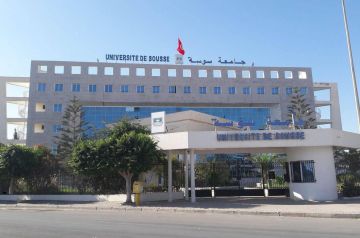The project will establish a framework for the development of a new Master’s Degree promoting economic models that consider social and environmental issues and put people first
South East Technological University (SETU) and University of Sousse, Tunisia, have joined forces in a new project to establish a framework for the development of a Master’s Degree in Social and Solidarity Economy (MSSE) as part of the ERASMUS Mundus Design Measures programme.
Erasmus Mundus Design Measures encourage the development of new, innovative, high-level integrated transnational study programmes at a Master level. A Master's Degree in Social and Solidary Economics (MSSE) is highly relevant in today's economy, as traditional economic models that prioritize profit over social and environmental concerns have led to a range of problems such as income inequality, poverty, and environmental degradation.
Addressing shortcomings of traditional economic systems
The proposed MSSE project is a joint effort between SETU’s Office of International Relations, School of Business, School of Humanities and Walton Institute in collaboration with University of Sousse (Tunisia), University of Porto (Portugal), and ACTED (France), offers a valuable alternative promoting economic models that consider social and environmental issues, and put people, communities, and local territories at the centre. In some cases, it can also address shortcomings of traditional economic systems in responding directly to identified environmental and social problems and in prioritizing the well-being of individuals and communities.
“The MSSE project is to be used as a stepping stone pathway for participants to brainstorm and develop a framework and plan for the setting up of the Master’s Degree in Social and Solidary Economics,” explained Jim Clarke, Walton Institute. “If successful, there is a follow up phase where ERASMUS will fund the entire implementation of the Master programme.”
Interdisciplinary collaboration
The main objective of the MSSE will be to provide students with a comprehensive understanding of the principles, theories and practices of social and solidary economy, including its history, theoretical foundations, and current challenges; train professionals who can understand and work on sustainable economic solutions that take into account social and environmental aspects; develop skills to design and implement projects that promote equity, social justice, and environmental sustainability; and provide students with a deep understanding of alternative economic models and practices of social and solidarity businesses, as well as management, communication, and project development skills to implement them in various contexts.
According to Dr Don O’Neill of SETU’s School of Humanities, “A collaboration between the Office of International Relations, School of Humanities, School of Business, and Walton Institute at SETU is a natural fit for the design of a Master's degree in Social and Solidary Economics. This joint interdisciplinary collaboration would aim to provide students with the knowledge and skills to become leaders and change-makers in the field of Social and Solidary Economy, promoting more inclusive and sustainable economic models, with emphasis on the integration of the social and solidary economy into the economic mainstream.”
Employability of students
The programme will be based on the labour market needs and job offers to ensure the employability of the students at the end of the course and will prepare them for a wide range of careers in fields such as social and solidary economy enterprises and cooperatives, corporate social responsibility, NGOs and non-profit organisations, Government agencies, community development, and social entrepreneurship.
Sinead Day, International Affairs Manager, Office of International Relations added, "This internationalisation opportunity enabled by ERASMUS funding will allow the SETU team led by Mr Clarke and colleagues in Schools of Business and Humanities to work with key international partners to further demonstrate our commitment to the sustainable development goals, and to provide students with highly relevant skill sets to secure more sustainable futures for their communities. We are delighted to participate in this ERASMUS + project again with University of Sousse and other distinguished partners and wish the team well.”


